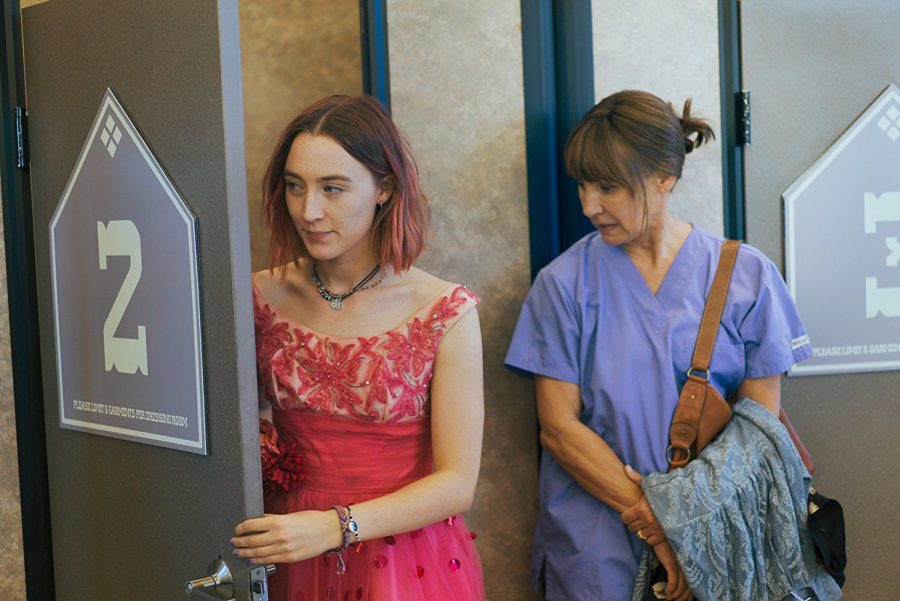“Lady Bird” : A Film Review
December 7, 2017
People are talking about “Lady Bird,” and it’s with good reason.
“Lady Bird” is the first feature film independently directed by actress/writer Greta Gerwig. The story follows a teenage girl, Christine (who has renamed herself “Lady Bird”) living in Sacramento as she finishes out the final year of her high school career.
As a directorial debut, the film is a triumph for Gerwig as it intimately captures female adolescence with grace and humility. Not only has it thus far grossed $11,065,558 at the box office, but is currently the highest ever rated film on Rotten Tomatoes, according to IMDb.
This is a refreshing film that seeks not to idolize or demonize the teenage female experience. It’s beautifully shot, enthralling and yet extremely relatable. Many directors have attempted to capture the beauty of eighteen years old, but few have been able to do it as gracefully and honestly as Gerwig.
“Lady Bird” reflects upon a number of coming of age situations within its narrative, and many seem to boil down to the struggles of a young woman trying to balance her personal relationships with her dreams of what she wants her life to be. The turmoil between Lady Bird and her mother is so heartbreakingly real that it sometimes felt like salt was being poured into wounds of my own. The complicated intertwining of her friendships and romances express the raw emotion of adolescence.
While wanting to escape from a childhood town isn’t a new trope in coming of age films, “Lady Bird” draws upon the convention with dignity. Sacramento is not only the film’s setting, but the hometown of Gerwig and throughout the film, the city of Sacramento becomes a character of its own. It manages to fuse together the ideas of imprisonment that one feels towards the town in which they grew up and the deep sense of connection that manifests itself once he or she has left it.
All in all, it’s a movie about longing and the things that get in the way. If viewed in a certain light, it acts as a companion piece to the 2012 film “Frances Ha,” which Gerwig co-wrote and starred in. By watching these two films, the viewer gets the sense that both protagonists not only contain pieces of Gerwig herself, but perhaps are even loosely the same person at different points in life.
Following a string of loud, macho previews filled with explosions and glamorized masculinity, this witty film about a teenage girl with ideas bigger than herself is a captivating example of what can be created when women are allowed to make art about womanhood. It’s beautiful, genuine and very clearly a work of deep reflection and compassion on the part of its director.







